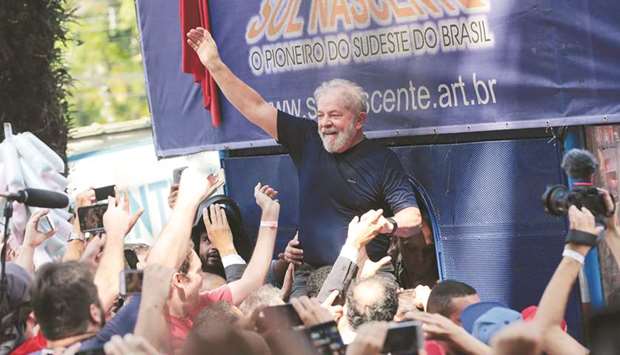In a statement, the panel “requested Brazil to take all necessary measures to ensure that Lula can enjoy and exercise his political rights while in prison, as (a) candidate in the 2018 presidential elections.”
Lula, who served as Brazil’s president from 2003-2010, began serving a 12-year sentence for corruption in April, but remains the front-runner ahead of October’s election. The committee said Lula cannot be barred as a candidate “until his appeals before the courts have been completed in fair judicial proceedings” in order to avoid inflicting “irreparable harm” on the 72-year-old.
Committee member Olivier de Frouville told AFP that Lula’s appeals at Brazil’s superior and supreme courts could lead to the cancellation of his conviction. Given this legal uncertainty, Lula should be able to “organise and campaign, even from the jail,” he said.
The Geneva-based committee monitors a member state’s compliance with the International Covenant on Civil and Political rights, as well as a supplementary text called the Optional Protocol. Because Brazil has ratified both texts, it is technically obligated to abide by the committee’s findings.
De Frouville explained that Lula’s lawyers had asked for urgent action on three issues: that he be immediately freed from jail, that he be granted access to the media and his political party, and that he be allowed to run in the election. The panel rejected the first request but sided with Lula on the two other issues.
Lula’s lawyers filed a broader complaint with the rights committee in 2016 over his treatment by the Brazilian authorities. That case is ongoing and may take a year or more to resolve. The committee underscored that Friday’s emergency decision was not an indication that it would ultimately side with Lula in the larger case.
But de Frouville noted that panel members would not have requested urgent action on Lula’s behalf unless they believed his broader complaint had merit and that there was evidence Brazil violated his rights while prosecuting him over corruption.

